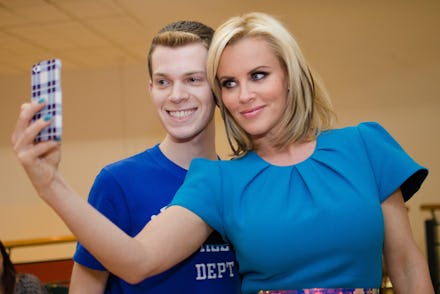The NSA Is Spying on Your Selfies for One Terrifying Reason

The news: Did you make sure that the latest selfie you sent via SnapChat was a good one? Because the NSA is probably checking you out on social media too.
The U.S. government can now add checking people's selfies to its growing list of infringements on civilian privacy, according to new leaked documents. The NSA once relied more on written and oral communication to identify potential targets or terrorist suspects. But now the agency is mining social media and other forms of digital communication, which are proving to be just as advantageous in helping track suspects and/or targets.
The New York Times reported that one of the 2010 documents said, "It's not just the traditional communications we're after: It's taking a full-arsenal approach that digitally exploits the clues a target leaves behind in their regular activities on the net to compile biographic and biometric information [to help] implement precision targeting."
Image Credit: Getty Images
The basic setup: The NSA's global surveillance program has been using facial recognition technology since 2010. And it is certainly revolutionizing their strategies.
Over the past four years the technology has expanded to include images from videoconferences, social media, text messages, emails and various other modes of communication. The goal is to amass a large collection of photographs of people's faces. Facial images and finger prints are extremely helpful in identifying NSA targets, so it is actually logical that they would employ digital tactics by gleaning images like selfies.
According to 2011 documents obtained by Edward Snowden, the NSA intercepts millions of images daily, some 55,000 of which are "facial recognition-quality images."
Currently the number of American civilians' images flagged is unclear. Neither U.S. surveillance laws nor federal privacy laws presently include any language barring the use of facial pictures.
As the law stands now, the NSA needs court approval to eavesdrop on phone conversations or read emails of Americans for their surveillance programs. Seeing as the government agency considers images to be a method of communication, then the same rules would obviously apply. An exception is made only when an American texts or emails a target abroad.
Image Credit: Getty Images
Selfies have a bad reputation anyway. The selfie craze is definitely still in full swing. But now that we know that the NSA may actually be looking at them, will it make you think twice the next time you whip out your camera phone to take one?